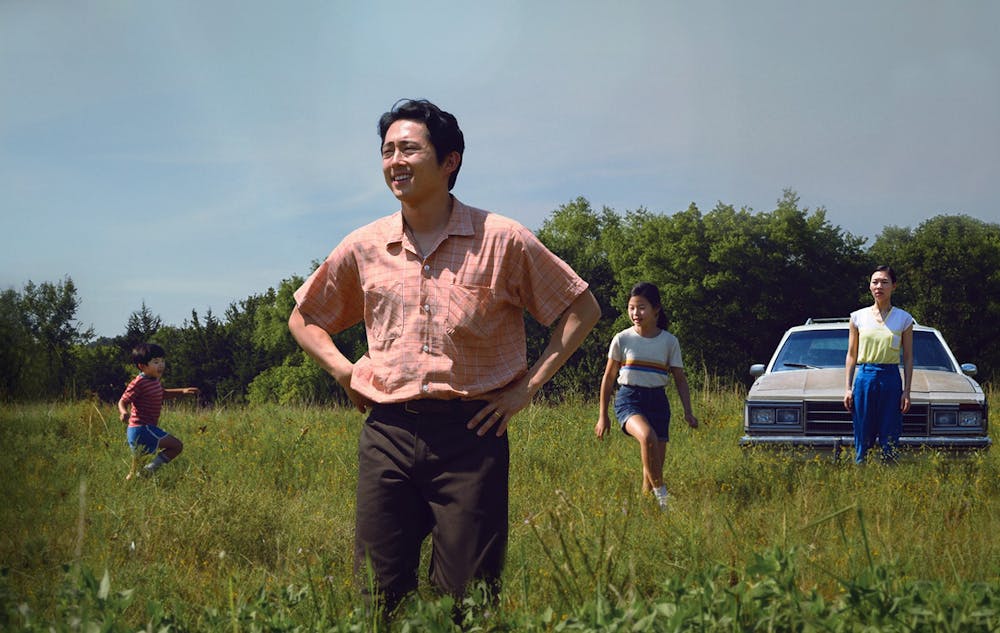Home is where the heart is. But finding a new home is a bit more complicated than that.
“Minari” tells the story of a Korean American family trying to do just that. The Yi family hopes moving from California to a mobile home in rural Arkansas will pay off after the father, Jacob (Steven Yeun), starts a farm there.
With the help of a new friend, a peculiar Korean War veteran named Paul (Will Patton), Jacob begins to plant Korean produce with the hopes of selling it to consumers in Dallas. To finance the operation, he and his wife, Monica (Yeri Han), take up jobs at a local hatchery. The family also tries to make inroads in the community, joining a local church to try and get to know their neighbors.
The family also makes arrangements for Monica’s mother, Soonja (Yuh-Jung Youn), to come from California and join them in Arkansas. She has to share a room with the family's youngest son, David (Alan Kim), who has difficulty dealing with her because she doesn’t line up with his perception of what a traditional American grandmother should be.
The family struggles to make ends meet. Their difficult circumstances only worsen as the film progresses, with Jacob’s pride endangering the already precarious family dynamic and externalities complicating their way of life even more. Eventually, they must reckon with what they want their place in society to be, as individuals and as a family, and attempt to overcome their struggles together.
The family's dynamic showcases something “Minari” excels at — highlighting the culture clash between conflicting Korean and American traditions and how difficult it is for a family of immigrants to confront them.
A strong, Oscar-nominated screenplay delivers thorough, compelling insights into the plight of individuals who are desperately trying to make their own way in the world — while struggling with pressures both external and internal. The heartfelt conversations between Jacob and Monica, especially in the film’s back half, reveal the emotional toll the process is taking on them.
The performances from the cast in this movie are all phenomenal and bring this point to life beautifully. Every single member of this ensemble could have been nominated for an Oscar. In fact, two of them were:
Yuen was nominated for Best Actor for perfectly encapsulating the attitudes of a father dealing with a crisis of identity, struggling to hold onto his Korean roots as he embraces the identity of an American Reaganite farmer. Youn earned a nod for Best Supporting Actress for her adorably heartwarming portrayal of a grandmother who wants nothing but the best for her family — and I wouldn’t be surprised if she took the trophy home. (I mean, after watching that, I want her to be my grandmother.)




